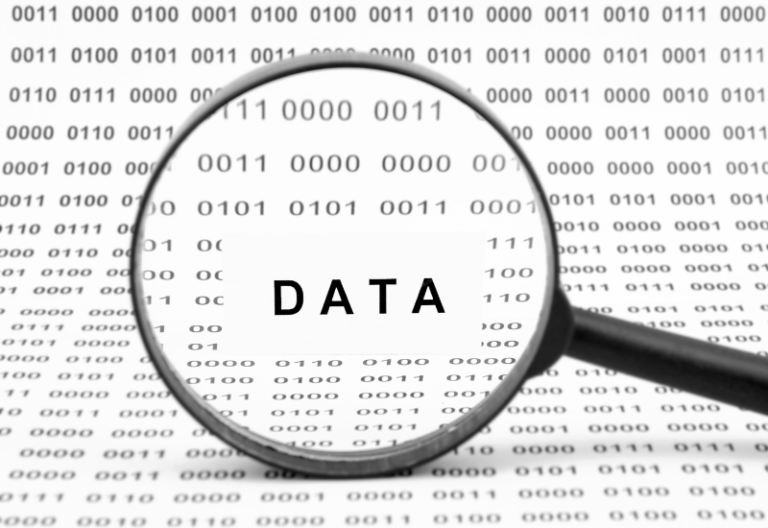Healthcare professionals must implement robust security measures to safeguard their patient’s data. Safety privacy measures such as audit logs can help protect medical records from unauthorized access or breaches.
By complying with HIPAA audit log requirements, healthcare organizations can ensure that their patient’s records are safe and secure. Moreover, the audit logs can also help with the analysis and investigation in case of a data breach. These can accurately capture the names of people who previously accessed the medical information, the date and time of access, and relevant system activities.
Table of Contents

Defining Audit Logs in Healthcare
An audit log or trail is a historical record of activity for security and compliance purposes. It consists of the names of people who recently accessed the medical records, date of access, and time-stamped data. Patient logs can help you monitor and manage who has access to your patient’s medical records.
HIPAA requires healthcare organizations to regularly review how they collect and store confidential data. Protected Health Information (PHI) encompasses sensitive patient data to ensure compliance with HIPAA regulations. This includes demographic information, medical records, and test results. Maintaining the confidentiality and integrity of PHI can help put your patients at ease.
Why Are HIPAA Audit Logs Necessary?
Audit logs help healthcare organizations maintain compliance with HIPAA regulations. This form of documentation increases adherence to security standards during regulatory audits by keeping a detailed trail of user activities. Also, this helps protect patient privacy and ensures that healthcare providers meet the requirements set by HIPAA.
Moreover, audit logs serve as a powerful tool to detect possible data breaches. These trails can record access to protected health information (PHI), providing a valuable resource for forensic analysis.
In case of a data breach, audit logs can help identify the source and extent of the compromised data. This can minimize the potential consequences, including legal and monetary penalties. Ultimately, HIPAA-compliant audit logs promote transparency and integrity of healthcare systems.

Benefits of HIPAA Audit Logs
Enhanced security and compliance
HIPAA audit logs are indispensable for maintaining security and compliance within healthcare organizations. Organizations can also leverage these logs to monitor and track unauthorized access and mitigate security risks.
Early detection of security incidents
Audit logs can help detect and mitigate security incidents quickly. By regularly reviewing and analyzing HIPAA audit logs, healthcare organizations can efficiently identify any suspicious activities. Early detection of security incidents can significantly minimize the impact on patient privacy and data integrity. Furthermore, it helps organizations implement necessary security measures to prevent breaches leading to costly penalties.
Forensic analysis and investigation
In the event of security incidents, audit logs can provide crucial evidence to determine the source, extent, and impact of a data breach. Forensic analysis of audit logs enables organizations to conduct a thorough investigation to assess the scope of the incident.
Improving operational efficiency
Audit logs can also enhance operational efficiency within healthcare organizations. Organizations can leverage this information to optimize workflows and identify areas for improvement. Analyzing audit logs can help streamline processes to improve productivity and resource allocation.
Information Tracked in a HIPAA Audit Log
From user credentials to the number of accessibility attempts, a HIPAA audit log captures an array of information to see a detailed view of user activities and system changes. By tracking these crucial elements, healthcare organizations can maintain a robust security posture, demonstrate compliance with HIPAA regulations, and ensure the confidentiality and integrity of sensitive patient information.
These logs serve as a digital record of the following information:
- Login credentials
- Date and time stamps
- IP addresses and location
- Objects or resources obtained (e.g., medical images)
- Type of devices used
- Errors and warnings
- System modifications
- Suspicious transmissions
Overall, audit logs track who accessed the system, what actions they took, when, and from where. This information is crucial for identifying potential security breaches or unauthorized access to protected health information (PHI).
These trails can monitor system changes and document modifications made to user accounts. For instance, users with access to specific accounts may have changed permissions by authorizing third-party viewing. HIPAA audit logs may also include advanced monitoring and notifications of suspicious activities, depending on the system used.
Duration for Keeping Audit Logs
To meet the HIPAA audit trail requirements, you should keep copies of your audit logs for at least six years. While HIPAA does not explicitly specify a retention period for audit trails, your organization can opt to store the raw formats securely for up to one year.
However, specific state laws or other regulations may impose extended retention periods, so it’s crucial to know any additional requirements that apply to your organization. Also, other factors come into play regarding the duration of HIPAA audit logs retention. Consider your organization’s needs, resources, and volume of data. In high-risk environments, you may need to retain the logs for an extended period to prevent further loss or damage.
Overall, storing and managing large volumes of audit logs can be costly. It’s always best to consider your systems’ capacity and organization budget to determine a reasonable retention period. It also pays to consult with legal and compliance experts and industry peers to identify what’s best for your needs. By carefully considering these factors, you can establish an effective retention policy while managing the associated costs effectively.

Are There Any Specific HIPAA Audit Log Requirements?
Healthcare professionals and organizations should follow specific audit log requirements to maintain HIPAA compliance for audit logs. This involves monitoring who has access, the date and time of the activity, and the modifications or if there are other suspicious activities.
Below are the types of audit logs that should be included according to the HIPAA regulations:
- Application audit logs
- System-level audit logs
- User audit logs
You must store this information securely while making it available for review in case of security incidents. HIPAA strictly requires healthcare organizations to analyze the log data periodically to determine and mitigate security and privacy risks associated with PHI.
For a more secure and centralized system, make sure to take note of these key strategies when dealing with HIPAA audit logs.
Conduct comprehensive logging
Ensure that your audit logs capture a wide range of relevant information, including user activities, system changes, data access events, and security incidents. By implementing comprehensive logs, you can develop a detailed record of activity for analysis and monitoring.
Define audit log retention policies
Establish clear policies for how long you would need to retain your logs. You can follow the regulatory requirements while aligning your organization’s specific needs.
Retaining your logs allows you to access your historical data for compliance purposes and investigations.
Regularly review and analyze logs
To identify any unusual pattern or suspicious activity, your organization should perform regular reviews and analysis of logs. Not only does this help detect potential security incidents or unauthorized access to PHI, but it also prevents further damage. By identifying anomalies, you can promptly investigate and mitigate any potential risks.
Establish access controls
Implementing strong access controls helps you ensure that only authorized individuals can view and modify them. Furthermore, limiting access to audit logs prevents tampering or unauthorized modifications.
Integrate automated monitoring and alert systems
Leverage technology to automate the monitoring of audit logs and set up alert systems for suspicious activities. This enables real-time detection of potential security incidents, such as unauthorized third-party sharing or multiple failed login attempts.
Staying HIPAA Compliant With Audit Logs
By understanding the fundamental HIPAA audit log requirements, your organization can implement the necessary measures to ensure compliance. Thus, it is crucial to understand that HIPAA audit logs must include all the information required to track and monitor access to PHI.
It’s also best to choose a secure and advanced audit logging system that can effectively capture, store, and manage all relevant log details.







